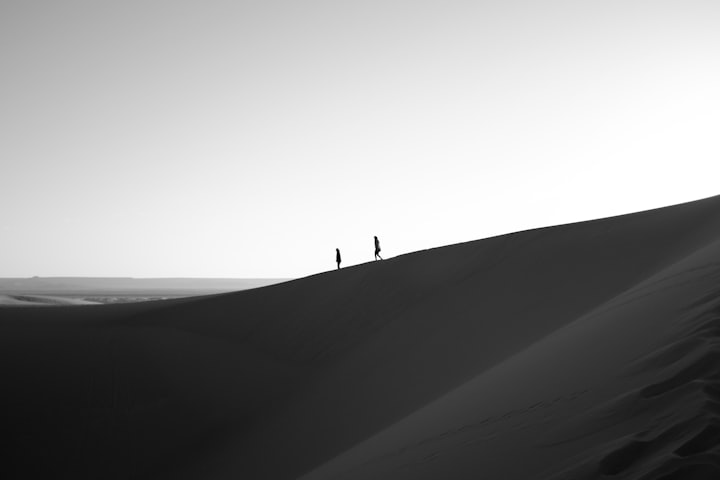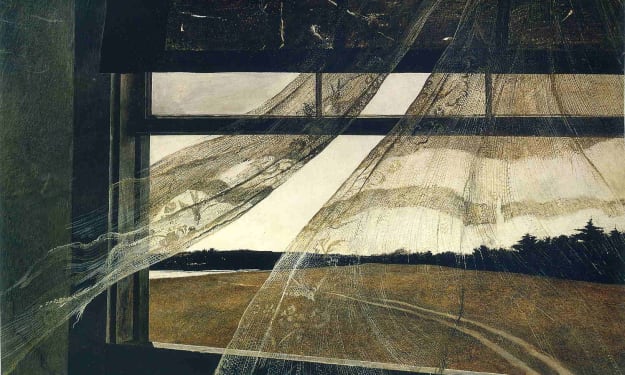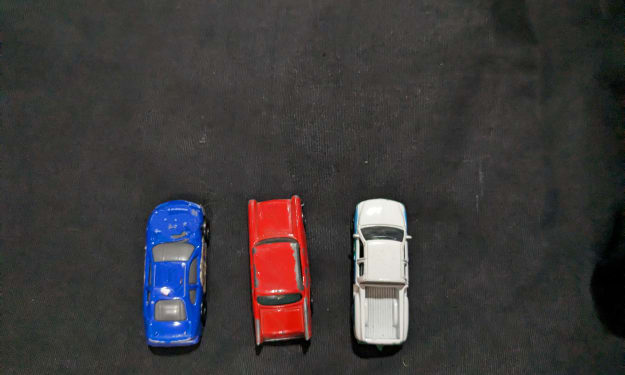Journey into the Dark Lands {Part One of Three}
A young scholar, a mysterious baron, and a frightful expedtition into the unknown.

In 1946, then twenty-six years old, I had been in the service of a wealthy oil baron who had a restless passion for exploration and acquirement of material wealth. His thousands of acres of oil land he acquired when he was only nineteen years of age, then a well-built young man of reasonably intimidating height and adventurous spirit. As money had never hindered his vast exploits, his fortune exceeding any formal number value, he ventured far and wide across the globe, accompanied by a band of equally adventurous pundits and scholars, mountaineers, engineers, and ex-commandos. The baron himself had no formal education apart from his own private reading, having owned a colossal library where he collected thousands of books.
The extent of my own rambles shied far from the impressive scope of his own explorations, myself having only done graduate-level fieldwork on a few well-established archaeological sites, both within a one-hundred-mile radius of Cairo. My initial studies varied between ancient languages, archeology, and Mesopotamian agriculture, the first of which I studied voraciously and with great enjoyment. Such a field is ripe to attract odd persons of obscure backgrounds and relations, most reclusive, always pawning socialization for pensive and isolated studies, particularly in the dimly lit and rather unknown sections of the libraries where the most ancient and valuable of tomes were available for perusal.
It was a sultry day in late July when I first met Khalid Akbar, as he chose to call himself. His real name, for reasons I cannot reveal, will remain unknown to the reader. At the time I was employed by the Bodleian Library at Oxford, where I was responsible for cataloguing long-forgotten texts into a more sophisticated system of referral. In a detached corridor of the library, one rarely seen by the eyes of the Oxford community, which at the time was swollen with contemporary scholars, uninterested in the ancient texts I relied on for excitement, I met him. He pulled behind him a squeaking metal cart piled with massive tomes, the bindings very fragile and at risk of immediate deterioration.
Never having seen another scholar with evident interest in this hidden section, I inquired of his reasons and wants, offering to assist in finding any particular text he desired. I found the young Arab to be highly intelligent and an excellent conversationist. All the while enjoying his company, I found a peculiar reluctance in Khalid’s demeanor, as if he were hiding a great secret. He would speak at great length about the ancient and indecipherable tongues of civilizations predating the earliest of the well-known Egyptian Pharos, sauntering dreamily into tales of his exploits into the wilds of China, South America, and of course Egypt, which he alleged to be his true native country. I found his company and erudition of such quality that I asked him to join me for a spot of lunch at a nearby café where we might continue our discussion over a cup of tea and a sandwich. He gratefully declined my offer, revealing that he had no time to waste in obtaining appropriate research materials for his next exploration. Reluctantly, my emotions rather abashed, I left him in peace where he continued to peruse the great mass of books with tenacious concentration.
I had been so obliviously enveloped in my current work at the Bodleian that I had forgotten to take any food or water since the previous evening. It was now seven o’ clock, and my stomach begged for sustenance. My main mode of transportation during the time was an old bicycle I brought from home in Dorset, which I used since I was sixteen years old. I parked at my regular café, just a five-minute ride from my workplace, and sat at my usual table. Around me were young men and women engaged in hushed speak, ogling into one another’s eyes, lost deep in love affairs I had never engaged with. My only companion, as it had been for my entire life thus far, was a book, and if romance is a theme not limited to passionate human connection, then I was undoubtedly and unashamedly in love with and at the resplendently shackled service of my books.
I thumbed through a small text I had discovered in my private section of the Bodleian while sipping a cup of tea and nibbling at the cheese sandwich I had ordered. Gluttony was never an attribute of my character; I sustained and prided myself, and my shallow bank account, with my inherent capability to survive on very little food. My waiter, a young man with sunken eyes and intensely carved facial features, made his last rounds before the café closed for the evening. I swigged the last of my cold tea and put away the rest of my sandwich, which replenished me fully, wrapped my aged book in a sackcloth bound with a leather clasp, and headed home to my one-bedroom flat conveniently located near the Bodleian.
It was a balmy evening in Oxford, and I was restless. Strange visions, no doubt owing to the dense readings of old that I immersed myself in, held me at the fringe of the grotesque daymares which tended to haunt my imagination during this hour. The air was much cooler than it had been during the young hours of daylight, and I decided to take a stroll around the campus and let my tangled thoughts unwind themselves. Instinctively, my saunter led me to the exterior of my familiar annex, where inside, through the old float glass windows, I saw the delicate flickering of an oil lamp. It must have been my acquaintance, I thought, amazed that I had forgotten about him. Reluctant to disrupt Khalid’s studies, but selfishly finding myself drawn to the new companionship, I crept into the library, vacant except for a few furrow-browed, dark-eyed law students exhausted and half-dead from a relentless preoccupation with their studies.
Sure enough, as I peered through the narrow decrepit doorway of the annex, Khalid sat at a sturdy oak desk, its rate of decay matching that of the assortment of ancient tomes inhabiting the shelves, small piles of books surrounding him.
Upon the first violating creek of a wooden panel beneath my foot, Khalid spun around in his chair, fists balled into clubs, his eyes dark and petrified. What caused his terror was not my unprescribed presence in the shadowy annex, but, as Khalid revealed after he had calmed, was owed to a certain tome he had discovered, one he had been seeking for nearly two years.
I brought forth an old chair from a separate corridor and, upon Khalid’s request, attempted to decipher the strange text, hand-written in a muddle of hieroglyphic depiction and near indecipherable scrawl. At first, it seemed to be a simple narrative of an ancient conquest, littered with battles of sorts, all unknown to me at the time. As I continued to decipher, aloud, the strange text, the opaquer the translations became. Khalid’s eyes darted out into distant corner of the room, unwavering and alert. When I paused, hindered by the particularly difficult annunciation of a hieroglyphic character, Khalid spoke:
“Enough. It is true.” A strange lugubriousness in his voice.
“What’s true,” I asked, my curiosity bordering on emotional instability.
With a newborn felicity, facilitated by Khalid’s confident intelligence, he revealed to me the intentions of his next expedition into Egypt, into the forsaken lands detailed in the ancient narrative.
“I am certain this is the last text of Ahmad Omari, the ancient explorer of the Kemet Mat.”
The oil lamp flickered and sputtered, sending a creeping terror into my body.
“Kemet Mat,” I repeated, staring deep into the empty black space beyond the annex, translating the phrase in my head. “The dark lands?”
“Yes, yes.” Khalid’s eyes became bright and glaring. “It’s all true.”
“What’s true, my friend. I beg you to tell me.”
“You have proved a very worthy companion,” he said after a moment. “It is not chance that you and I have met. Tonight, my friend, the stars have aligned, and whatever God I have spent my life beneath will soon be shrouded in my glory.”
Out of sincere concern for my new friend’s wellbeing, I begged of him to return to my apartment and take rest and food. There he could explain his meaning, and further detail the exploration he meant to undertake. He again declined my offer, but insisted, better said, demanded, that I meet him outside of his hotel at nine o’ clock the next morning.
“Bring whatever provisions you require,” he said. “I will provide the tools and books you will need for the expedition.”
I protested meekly. The offer, however intriguing, would sacrifice my career at Oxford, and delay any future expeditions of my own. “I haven’t the funds for such a journey, and the intent of your investigation is still so unclear to me! What of my career?”
“This is the beginning of your career, my friend,” he paused, a morbid shadow passing over his countenance, “and quite possibly, the end.”
Enraptured as I was by ancient Egypt, and profoundly intrigued by my new friend’s visions of this novel exploration, brash hastiness was not one of my qualities. I protested again, heavily, but begged of him to explain in clarified detail and lay out the terms of the expedition. For all his unique and admirable knowledge of the ancient tongues, ages, and people of Egypt, I still was present with a stranger. I knew nothing of Khalid Akbar. His credentials, to me, remained bare and subject to mendacity.
Khalid removed himself from the desk and walked to a tall shelf of books, where he stood silently for a few moments, pondering something.
“I must apologize. For as long as I have come into manhood, I have lived my life on the risky basis on spontaneity. When I have a dream of achievement, I immediately pursue it. It is foolish of me to expect others to live by the same code.”
I kept appreciatively silent as he turned around and studied me, tension passing over his face. His lips pursed and trembled as if he were going to speak again, but, exasperated by his inability to make the words, he shot towards me with an outstretched hand.
“Thank you for your expertise and companionship this past day,” he said, shaking my hand fervently. “Do keep in touch, my friend.”
With these last words, he left the annex before I could utter a syllable. My restlessness spun into a relentless urge to know more about the Kemet Mat Khalid had spoken of. In such a torment, sleep was impossible. I stayed in the annex, the oil lamp at full glow, and delved deeper into the ancient book before me.
As I translated, at times in vain, for some of the pages were perforated and horribly stained, my curiosity towards Khalid’s proposed expedition turned sanguinary, holding my life and duties at Oxford in suspension. Perhaps what I lacked in my young life was true adventure, a journey into the unknown. Such an occupation guaranteed no pay, no grand status or renown, but the possibility of these things chewed at my self-control, and in the early hours the morning, without bothering to reshelve the tomes brought out onto the table, and stealing away with the esoteric narrative of the Kemet Mat, I found myself alone in my small apartment, hastily stuffing clothes and papers and writing utensils into my thick leather duffle bag, and hurrying down to the hotel where Khalid insisted I meet him.
A light rain sputtered on the pavement as I sheltered myself in a vaulted archway of the Old Bank Hotel. My watch read 8:02, and I spastically jerked my head left and right, afraid I would miss Khalid if he chose to depart from Oxford earlier than he had planned. Uncertainty spiraled into dread as I waited, thinking of the Bodleian, my books, my research, my safe secluded home. It would be wise, I thought, (and such cowardly thinking it seems to me now), to put forth an effort of reconnaissance and investigate the veracity of my newfound colleague. If all seemed in order, his qualifications sound, his motives inspiring and of good academic dignity, only then could I confidently become his partner in the mysterious expedition. Safeguarded from any ill-fate by my notion of a more diligent inspection, I resolved to turn back before I met Khalid outside the hotel.
Rain wetted my boots as I took the first step from under the sheltered archway, when a shining black Hackney Carriage swerved up quickly in front of me, sending a small tidal wave of water from the road to the walkway, splashing onto my trousers. I shot a vengeful glance at the cab driver, who looked blockish and temperamental.
The rear door flung open, and before I could carry on my way, Khalid emerged from the dim cab with a look of extreme excitement. He shook with laughter and flung his hands up into the air, his tongue flopping out over his chin to taste the rain.
“Aha! A wise man comes to me this morning! You’re a lucky man. If you wouldn’t have come early, you would have missed out on the adventure of a lifetime. The adventure of one-hundred lifetimes!”
He tore the duffle bag from my hands, flung it into the rear of the cab, and sent me flying inside with a hard push.
He climbed inside, connecting tightly with my shoulder, and tapped on the separating window of the cab.
He shouted joyfully at the cab driver. “Heathrow airport, on the double!”
The cab pulled away, rain lashing down upon it, carrying us with great speed out of Oxford, across the dreary, misty hills of pastoral England, where I looked tiredly out my window, hesitant to speak to Khalid at all, for fear that I may find myself begging to be returned. Within an hour we were motoring through the congested bowels of London with its towering gothic architecture and swarms of civilians. My quiet life in Oxford seemed then to be a dream in a seperate galaxy of existence.
I will not deny my horrific sense of fear as we sped towards the airport, where, I thought, nauseatingly, it may very well be the last time I set foot on British soil!
END OF PART I
About the Creator
Max Wickham
I write short stories from a secluded spot in the Ohio countryside. Ohio is mysterious place, and her little villages hold some truly frightening tales. Inspiration for my stories comes directly from the people and places around me.






Comments
There are no comments for this story
Be the first to respond and start the conversation.